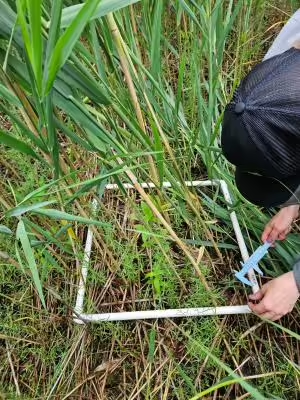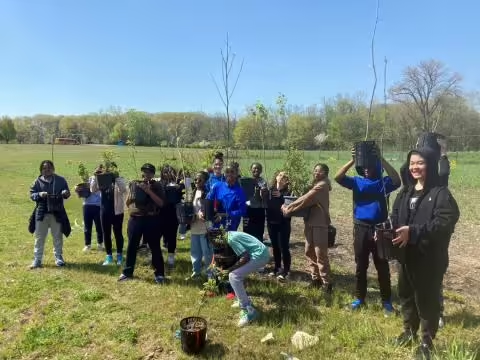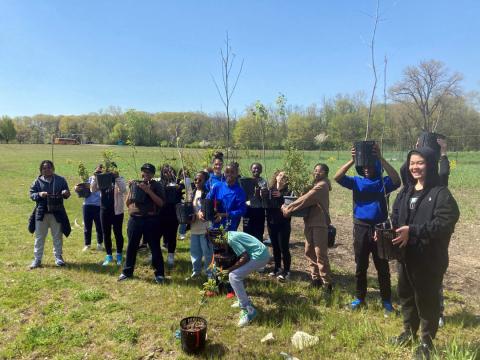Category: Other
Vacant Kincardine council seat filled at special meeting
(By Liz Small) The vacant council seat for the Municipality of Kincardine was filled at a special meeting held in council chambers on Nov. 6, with Stellina Williams as the … Continue reading Vacant Kincardine council seat filled at special meeting
The post Vacant Kincardine council seat filled at special meeting appeared first on Kincardine Independent.
Great Lakes Commission Distributing Over $500,000 To Improve Management of Invasive Wetland Plant
Great Lakes Commission Distributing Over $500,000 To Improve Management of Invasive Wetland Plant
josterme01
Thu, 11/07/2024 – 12:46 pm
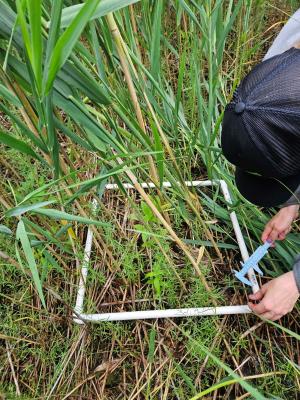
Over $500,000 of Great Lakes Restoration Initiative (GLRI) funding is being distributed by the Great Lakes Commission (GLC) through the Phragmites Adaptive Management Framework (PAMF) to improve management outcomes for treatment of the non-native Phragmites australis (common reed). Phragmites is a fast-growing non-native wetland plant species that has invaded much of the Great Lakes Basin. Phragmites can spread rapidly and outcompete native vegetation, thus contributing to landscape-scale ecological degradation. An extensive amount of time, effort, and resources are spent annually to control this problematic species, but site-specific guidance on best management approaches is still limited. To address this gap in management guidance, the Great Lakes Phragmites Collaborative (GLPC), a collaboration between the Great Lakes Commission, U.S. Geological Survey, University of Georgia, and other academic and management organizations, created and ultimately implemented the PAMF program in 2017.
PAMF is a participatory science program designed by the GLPC, including an interdisciplinary Science Advisory Team and Technical Working Group. The program uses Phragmites management data provided by land managers from around the Great Lakes Basin to help a predictive computer model “learn” about which Phragmites management approaches achieve the best outcomes. The model predicts which management actions will be most effective, and then each summer PAMF offers this guidance to participating land managers for the following year. The model outputs improve each year as incoming data characterize how the plant responded to the previous year of management. However, some management actions in the model are not widely used by managers and thus are underrepresented in the model. Therefore, a new Active Adaptive Management Program (AAMP) was initiated in 2024 to stimulate application and data collection of underrepresented treatment combinations, accelerate model learning, and improve management outcomes.
In March 2024, PAMF-AAMP released a request for proposals, through which land managers could apply for individual grants (most ranging from $5,000-$30,000) that provide the financial resources for testing specific management predictions. In September of 2024, the first round of individual grant recipients was announced, and management actions began shortly thereafter. For at least the next two years, AAMP participants will implement, monitor, and report impacts of specific Phragmites management actions that have fewer representation in the PAMF model data inputs. Results from this targeted AAMP program will be used to refine the PAMF predictive model and improve the effectiveness of future Phragmites management efforts.
Learn more about the Phragmites Adaptive Management Framework and the Active Adaptive Management Program.
South Bruce voters support willing host status for DGR
(Contributed by Midwestern Newspaper Staff) Eligible voters in South Bruce voted in favour of declaring the community a willing host for the Nuclear Waste Management Organization (NWMO) Deep Geologic Repository … Continue reading South Bruce voters support willing host status for DGR
The post South Bruce voters support willing host status for DGR appeared first on Kincardine Independent.
Local housing options discussed at Kincardine council
(By Liz Small) Kincardine Council heard a report at the Oct. 23 meeting about moving forward with affordable and supportive housing options in the Municipality of Kincardine. To read the … Continue reading Local housing options discussed at Kincardine council
The post Local housing options discussed at Kincardine council appeared first on Kincardine Independent.
Great Lakes Restoration Initiative grant improves soil, helps protect water quality in Ohio
Great Lakes Restoration Initiative grant improves soil, helps protect water quality in Ohio
josterme01
Tue, 10/29/2024 – 12:50 pm
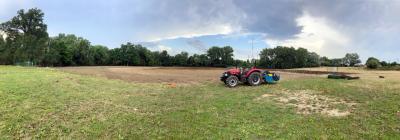
A $193,500 USDA Forest Service Great Lakes Restoration Initiative grant is helping maintain and improve water quality in Euclid, Ohio. The grant to Cleveland Metroparks is allowing partners to plant trees, reduce soil compaction and enhance a riparian buffer along Euclid Creek.
Cleveland Metroparks is the grant recipient and leads the project operations. The GLRI grant provided all the funding for the trees and herbaceous plants, plus rain gardens and deer fencing, and funds for the contractors to plant trees.
Euclid might not be a well-known community, but the nearby Cuyahoga River was once so polluted it made international headlines in the late 1960s through 1970s when it caught fire at least 14 times.
Teri Chuprinko, the USDA Forest Service grant monitor for the project, said the river has improved considerably since the ‘70s. “Today, the river can sustain fish and other wildlife. Organizations like Cleveland Metroparks are restoring riparian buffers and reducing stormwater runoff in the watershed to help maintain and improve water quality.”
The Euclid project is at the site of a former middle school with a sports complex that caused the soil to become heavily compacted after decades of being under the pavement and structures there. As part of the project, Cleveland Metroparks purchased a soil spader — still being put to use by cooperators on other projects around Cleveland — to decompact and amend the soil, which has been shown to greatly improve tree planting, survival and growth.







